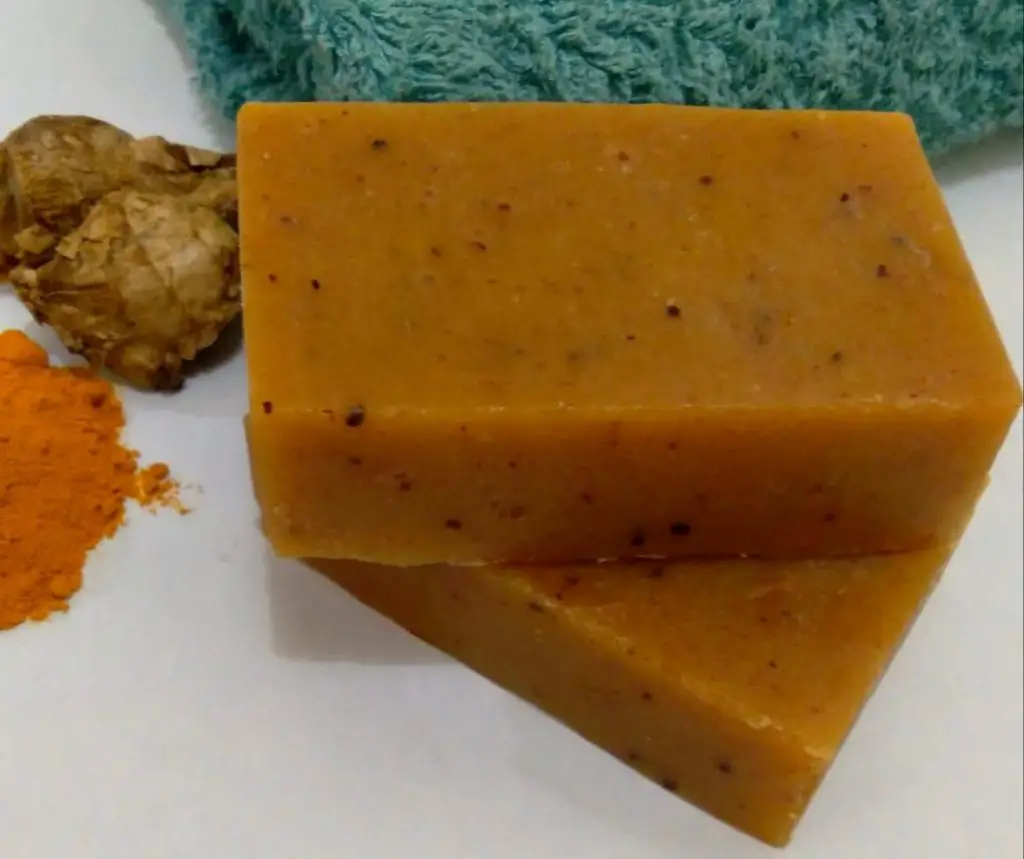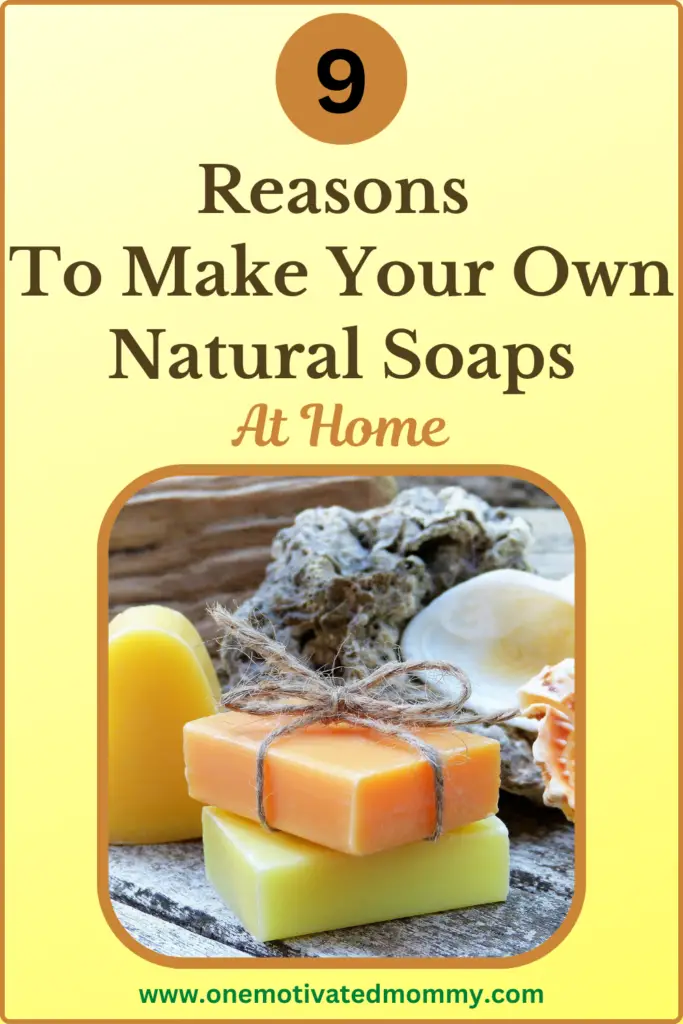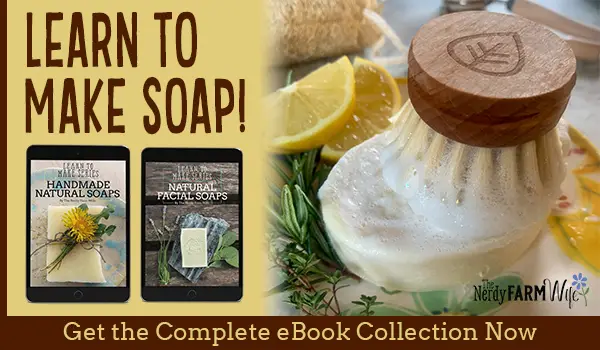My first experience with making natural soap was in high school (many moons ago). It was part of the chemistry syllabus and to me, just another lab exercise that we had to do for our School Based Assessment or SBA. I remember the resulting soap after carefully mixing and heating was just a tiny sliver. Although I loved learning about the process and creating something I could proudly take home to show my family, I was not yet bitten by the soapmaking bug.
Fast-forward about ten years later and a friend of mine took me to a little soap shop in the Cascade area here in Trinidad. When I walked in, the first thing that hit me was the pleasing fragrances that perfumed the air. Then I spotted the beautiful array of handmade soaps neatly lined up on the shelves, I was mesmerized.
I purchased my very first handmade soap that day and after using it, I knew I had to learn the art of soapmaking.
Since that day, I have learned so much about the craft and have made a variety of soaps using different processes. It has been a rewarding journey indeed!
Several years have passed since I purchased a commercial bar of soap. My family and I have been using our natural soap made at home and I truly believe that everyone should have at least one soapmaker in the family.
Here are 9 Reasons Why You Should Make Your Own Natural Soap
1. You Have Control Over the Ingredients
Commercial soaps are not actually soap but synthetic detergents or syndets. These chemicals can be harsh and drying to the skin.
The United States Food and Drug Administration states that for a product to be regulated as soap it:
They also state that if a product contains synthetic detergents it is a ‘cosmetic‘ and not soap.
These chemicals have been shown especially in individuals with sensitive skin to cause excessive dryness, irritation and contact dermatitis. Additional components of these products such as synthetic dyes, fragrances and preservatives also cause skin issues in some people.
A well-formulated, superfatted bar of handmade soap can be very gentle and leave the skin feeling clean, soft and hydrated.
Some people who, for personal or religious reasons may not want to use animal products in their skincare are not aware that some of the most popular commercial soaps on the market do contain animal fats such as tallow or lard. These are usually listed on the label under their saponified names – sodium tallowate or sodium lardate.
A bar of natural soap made at home can be 100% vegan with plant-based oils and additives.
If you or someone in your family is sensitive to synthetic fragrances and phthalates found in commercial soaps, use a natural essential oil of your choice or simply leave your handmade soap fragrance-free.
Fortunately, soapmaking suppliers such as Nurture Soap are moving away from fragrance oils containing phthalates.
2. Natural Ingredients Can Be Added
One thing that was most exciting to me when I started making soap was the ability to add natural ingredients of my choice. Growing up, my grandmother had an array of plants growing around our house that she used for beauty and medicinal purposes.
Aloe vera was one such plant that was grown in abundance and used extensively for skin and hair care. In addition, she grew lots of local herbs, lemongrass, vervain, ditay payee, ratchet, as well as turmeric and ginger, she always had ways to apply them topically for their benefits.
Today, we have access to many beneficial additives that can be added to soap to treat skin in different ways. For example:
- Activated charcoal and clays for cleansing and drawing out toxins
- Oats, coffee and cornmeal for exfoliation
- Turmeric and ginger for skin tone
- Essential oils to kill bacteria or for aromatherapeutic benefits
In addition, you can make soap as simple as you like or add the most luxurious ingredients and exotic butters and silks from far away lands if you choose to.
3. You Can Control the Quality of the Soap
Through the use of soap calculators such as SoapCalc you can fine-tune your soap recipes toward a particular outcome as these calculators can, for the most part, predict the quality and properties of the finished soap.
For example, a soap recipe that is high in olive oil can produce a mild bar with a low lather that may work well with sensitive skin. Whereas a soap higher in coconut oil may be more cleansing for oilier type skin or skin that requires a little more cleaning action, for example, a car mechanic’s hands.
Other qualities such as the hardness of the bar, moisturizing properties and lather produced can all be controlled by the soapmaker.
4. Handmade Natural Soap is Rich in Glycerine
Glycerine is a by-product of the saponification process in soapmaking. It is an emollient, which soothes and softens the skin and it is a humectant that draws in moisture from the environment. In natural soapmaking all the glycerine is retained in the final bar of soap, therefore, it helps keep skin moisturized and hydrated.
In commercial soaps, however, the glycerine is removed as it is found to be more commercially valuable for use in other cosmetic products, such as conditioners, creams and lotions.
5. Soaps Can be Customized to Give as Gifts
One of my favourite reasons to make soap at home is to be able to gift it to family and friends. For my brother, I could create a custom-made soap-on-a-rope with his favourite herbs, a gentle exfoliant, and activated charcoal to cleanse his skin after his long days of work, topped off with the soap-safe dupe of his favourite masculine fragrance, this Drakkar from Bramble Berry
Or for my best friend’s birthday, I could gift her simple goat milk and honey soap scented with lavender, I know she would appreciate that.
There is a great feeling of accomplishment and pride when you have created something for the special people in your life.
6. You Can Start A Business
Once you’ve developed your soapmaking skills and have grown to love the process, you may find that you want to sell your soaps.
In today’s chemically-laden world, many people are looking for safer, natural alternatives to store-bought and commercially produced body care products. Therefore they seek out small-batch, artisan soapmakers for quality natural soap.

As with any other business, you would have to do your research to find out about government requirements and guidelines to start selling soap in your area. Do your due diligence and put things in place to start on the path towards building your soapy empire. Here are a few ways that you can sell your soap:
- Create your own website using Shopify or WordPress
- Sell at farmers’ markets, craft fairs, expositions or bazaars
- Offer your products for private label
- Sell to small businesses like bed and breakfasts or resorts
- Create soaps for specialized companies such as a pet store
- Specialize in soaps for wedding favours or baby showers
There are many ways that you can offer your own unique products for sale. For more information on the steps you can take to start selling your soaps, see my post How To Start A Soapmaking Business At Home.
7. You Can Teach Others How To Make Soap

Another great reason to make your own natural soap is you can teach others how to make it as well. Whether as a source of income or for free, it is a very rewarding experience to teach the craft to others. Here are a few ways you can share your soapmaking knowledge.
- Write a book and publish on Kindle KDP
- Create an online course through a program like Teachable
- Start a blog
- Conduct live online workshops through Zoom
- Conduct community classes
- Teach at home
Also, it is a fun way to bond if, for example, you throw a ‘soapmaking party’ for your friends or teach the kids in your family how to make a simple melt-and-pour soap.
Who knows, maybe you can start a family tradition by passing down soapmaking recipes to generations to come.
Each one teach one!
8. It Can Be Cost-Effective
When you just start making soap, it makes sense to purchase ingredients in small amounts when testing new recipes until you find your perfect combination of ingredients. This can make it seem like an expensive venture, especially when compared to commercial bars of soap that are produced cheaply in factories in massive quantities.
There is also the cost of purchasing the initial equipment to get started making soap, although most of the tools needed you may already have in your kitchen – see my post on Tools Needed To Make Soap At Home.
However, purchasing power comes in bulk buying. If you do plan on exclusively making soaps for your family, the best thing to do to reduce the cost is to purchase everything in bulk. Another option is if you have another soapmaker in your family or friend circle, you can split the purchase with them.
I use the soapmaking software Soapmaker 3, where I input the purchases and quantities when I buy soap ingredients and it works out the exact cost of each bar of soap per recipe.
Due to this calculation, I can confidently say that I have found that when ingredients are purchased in bulk, the price per bar of soap is substantially less than the average price of a commercial bar. For a bar of handmade soap that is rich in glycerine, and containing ingredients that are superior quality, in my opinion, is well worth the effort.
Another way to save costs is by using ingredients from your kitchen as additives. Cucumber peels, ground coconut after milk has been expressed, used coffee grounds, and an avocado that got too ripe, are just some examples of ingredients that would otherwise be discarded that can be added to soap.
In addition, you can barter goods with family or friends in exchange for a few bars of soap. I was thrilled when my friend gave me an abundance of lemongrass from her yard – I made lemongrass soap and gave her some of the bars in return.
Locally, I have been able to source large quantities of ground coffee and cocoa that have passed their sell-by date, at a fraction of the cost, straight from the plantations. These are perfect for soapmaking .
9. It Is Rewarding As A Hobby
Making soap is a pleasurable hobby. From planning a recipe from scratch, meticulously weighing ingredients, creating intricate designs, and taking the effort and time to be safe yet create a beautiful and unique product.
Studies have shown that there are numerous benefits to having a hobby. Some of these benefits include; lower blood pressure, lower risk of cardiovascular disease, better brain health, less depression and an overall greater sense of well-being.
Personally I believe I get a dopamine surge all throughout the soapmaking process, but my three favourite parts are – pouring the soap in the mould, cutting the soap into bars the next day and using the soap for the first time. Oh, how I look forward to that!
So if you’re looking for a hobby to pass time or to learn something new, I definitely recommend learning how to make soap.
You can be as creative as you want and produce a product that is useful to you and your family.
As a soapmaker, I will always be biased towards my craft, however, I do believe that soapmaking is a valuable skill that anyone can learn and benefit from.
Tell me, what other reasons can you think of that I did not consider in this post? Feel free to let me know in the comments below.
As always, happy soapmaking 🙂



I find it fascinating that natural soaps come with natural ingredients for exfoliation and improvement of your skin tone. I have a friend who wants to try investing in improving the looks of her appearance this year. I should talk to him about finding a body soap supplier that sells these if she can’t create her own.
Hi, Zachary. I am a true believer in making and using natural soaps, especially when there are so many ingredients from nature’s bounty that can be beneficial for obtaining and maintaining healthy, glowing skin. If your friend can’t make her own, there are many soap makers that create lovely natural soaps that you may be able to purchase in your local area or online.